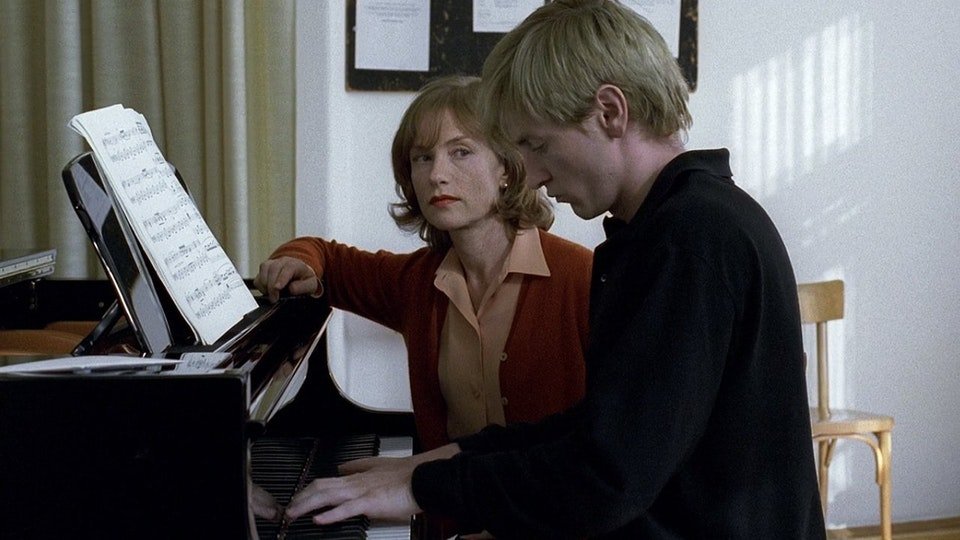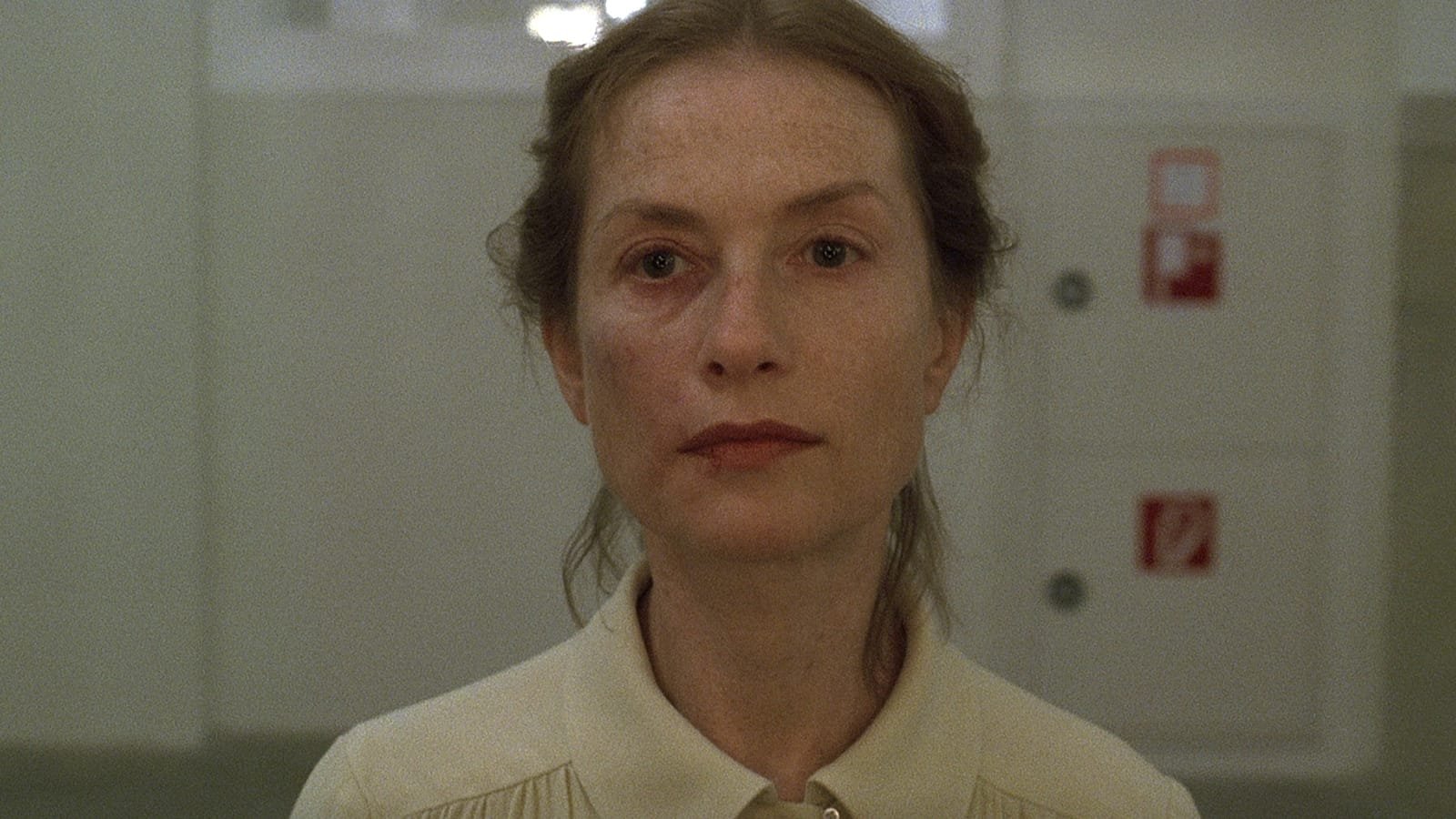The Piano Teacher (2001) film review - an analysis of Haneke’s most disturbing film
★★★★★
‘The Piano Teacher’ is an erotic psychological drama which delves deep into the provocative psychosexual relationship between a teacher and her pupil.
Director: Michael Haneke. Starring: Isabelle Huppert, Benoît Magimel, Annie Girardot, Susanne Lothar. 18 cert, 131 min.
The 2001 psychological drama film ‘The Piano Teacher’ is an adaptation by Austrian director Michael Haneke of Elfriede Jelinek’s 1983 novel ‘Die Klavierspielerin’, an in depth character study of repressed piano teacher Erika Kohut. Appearing disciplined, harsh, and controlled to her peers and students, Erika is soon revealed to be proprietor to a whole host of complex and controversial sexual desires. Over the course of this erotic French masterpiece, Erika attempts to act on her desires by engaging in a sexual relationship with one of her students. Through these interactions, the spectator is placed in an oddly intimate and incredibly uncomfortable position; watching her fumble her way through the messy intricacies of sex in a way she never has before. ‘The Piano Teacher’ is without a doubt a difficult watch, but also a beautiful one.
‘The Piano Teacher’ (2001) film poster artwork
Sexuality and gender in ‘The Piano Teacher’
Going into ‘The Piano Teacher,’ I knew little else but that the film’s director, Michael Haneke, had produced two works I thoroughly enjoyed; the 1997 psychological thriller ‘Funny Games,’ and later ‘Caché’ in 2005. To me, ‘The Piano Teacher’ exceeded both of these titles. The focus is almost entirely on Erika, and as such provides an extraordinary amount of depth to her character. Played excellently by Isabelle Huppert, Erika is a woman whose actions induce both sympathy and disgust. From scenes of self-inflicted genital mutilation and upsetting breakdowns to displays of her sly acts of cruelty to others, it is difficult to decide whether to feel sorry for her or not. But perhaps she shouldn’t be judged so harshly, having been brought up in a world dominated by the sexual tastes and desires of men. And when Erika attempts to turn her sexual gaze and desires onto the world of men, it will break her.
Isabelle Huppert and Benoît Magimel in ‘The Piano Teacher’ (2001)
Erika’s personal life and public life are two spheres Haneke entwines into ‘The Piano Teacher’ expertly well, and the juxtaposition between the two enable us as viewers to somewhat understand Erika’s character, and the tensions that exist within her. Erika is a highly respected and feared teacher at a conservatory in Vienna, yet she is simultaneously a failed concert pianist. At work, she exhibits a veneer of pure self-autonomy; she is cold and unmoving towards her pupils and those who audition before her. At home, she lives in a small apartment with her Mother, whom she shares a bedroom with, as well as an incredibly erratic and often violent relationship. Her Mother is domineering, and treats Erika like a child. Erika’s Father is significantly absent, and is noted to have died after a long stay in a psychiatric institution. In private, Erika frequents sex shops and tries on revealing dresses she will never buy nor wear.
The psychosexual relationship between Erika and Walter
Isabelle Huppert’s stony-faced portrayal of Erika belies little in the way of emotion, and as such Erika’s internal life is shut off not only from those around her in the film, but also from us as viewers. Throughout ‘The Piano Teacher’, we are only allowed to speculate, and Erika’s motivations and psychology may become clearer as the film progresses, but ultimately remain a mystery. Whether her desire to be beaten stems from her absent Father figure or other traumatic events in her life is never clarified.
When Erika takes on Walter Klemmer as a pupil, it appears she is finally allowing her desires an interpersonal outlet, which becomes evident in their first sexual encounter. Having jealously sabotaged one of her pupils by placing smashed glass in her coat pocket, Walter pursues Erika to the lavatories, where the two passionately kiss. Here, both Erika and Walter’s sexualities struggle against one another. Where Walter wishes to subdue Erika sexually in a way he is used to, Erika wishes to enact her own sadomasochistic fantasies, which disgust and confuse Walter.
Erika’s strict, disciplined pedagogy with regard to her piano instruction is one she attempts to apply to her sexual relations. Haneke echoes this relationship in the film’s soundtrack, often contrasting scenes of Erika’s perverted interests alongside beautiful classical music. Following the bathroom incident, Erika states that she will deliver Walter a list of her wishes she expects him to fulfill if they are to engage in a sexual relationship. ‘The Piano Teacher’ becomes from this point an extremely nuanced and complex battle for sexual control.
One could describe Erika as a victim of male sexuality and her own repression, struggling to assert control over her sexuality in a man’s world, but I think the reality is far more complicated than that. Walter is also a victim, a young man used to having his every desire satisfied, who has come across a woman whose own desires have humiliated him and corrupted his uncomplicated worldview. This interpretation is evidenced when Walter and Erika’s relations come to a head. Arriving at Erika’s apartment unannounced one night, Walter locks Erika’s Mother in her bedroom and finally consents to Erika’s demands, proceeding to brutally beat and rape her. ‘This is what you wanted, isn’t it?’, Walter cries as Erika struggles against him.
The ending of ‘The Piano Teacher’ explained
Haneke builds an excruciating amount of tension throughout ‘The Piano Teacher’, yet never provides its viewers with closure. ‘The Piano Teacher’ ends with Erika attending a concert, where she will perform Schubert as a stand-in for one of her pupils. Seeing Walter, who greets her as though he barely knows her, Erika stabs herself in the chest with a kitchen knife. Even with this action, she is self-restrained, allowing herself only a split second of outward emotion, a split second loss of control before settling back into her blank-faced persona.
The cinematography in ‘The Piano Teacher’ is gorgeous throughout, but in this final scene the static shot of the concert hall exterior as Erika strides out, blood blossoming through the fabric of her blouse, is simply breathtaking. The way the camera lingers long after Erika has left the shot, cars whizzing past, the outside world carrying on as one woman crumbles and breaks apart inside; the simultaneous emotionlessness yet delicacy of ‘The Piano Teacher’ is at once spellbinding and heartbreaking.
The ending of ‘The Piano Teacher’ is ambiguous because in a sense, both Erika and Walter have gotten what they desired out of the situation, but both have suffered as a result. Erika, a woman so intent on remaining disciplined, has achieved her masochistic wish to lose control, to be taken over and hurt. However, Walter has taken away from her the need to have those desires consummated in a situation she has full control over. Walter, a young boy with the desire to engage in sexual relations with his mentor, has been able to do just that, but in doing so has sacrificed his sense of morality and normality. In this way, both Walter and Erika are portrayed to be victims of their desires and each other. Haneke himself has stated that victims interest him more than perpetrators, which is why his films feature so many women and children, but the victimhood portrayed in ‘The Piano Teacher’ is not as straightforward as one would expect.
Should you watch this before you die?
Overall, Haneke’s ‘The Piano Teacher’ is nothing short of a masterpiece. One cannot imagine the film functioning to such a delicately disturbing effect half as well as it does without Isabelle Huppert, who portrays Erika in a restrained yet intimate manner. Haneke’s departure from German to French language films and subsequent influence of French directors such as Chantal Akerman is evidenced in the film’s similarly restrained cinematography. The impassive, detached gaze Haneke forces upon such emotionally charged source material creates a wonderful tension in ‘The Piano Teacher’, which I would describe to be one of the most thought provoking and upsetting films I have ever watched.




